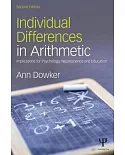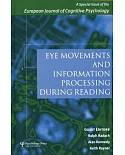The editors (a professor and a research fellow in experimental psychology at Ghent U., Belgium) present a collection exploring recent research on spatial working memory, which is to be
distinguished from visual working memory or visual object memory and understood as referring to the storage and manipulation of information that refers to locations in space irrespectively of
the modality of the receptors (visual, auditory, kinesthetic, etc.) that provided the information. The nine papers are organized into two sections. The first deals with the key theoretical
issue of what kind of system is it that allows spatial working memory abilities (as it can be deduced from behavioral limitations and regularities of working with spatial information), as well
as methodological issues, while the second addresses specific problems, such as how our views on working memory can be used to better understand the development of particular skills in children
with developmental deficiencies, or how the working memory system can handle individual differences in the representation of spatial information, to name just two. Psychology Press is an
imprint of the Taylor & Francis Group. Annotation 穢2011 Book News, Inc., Portland, OR (booknews.com)





















